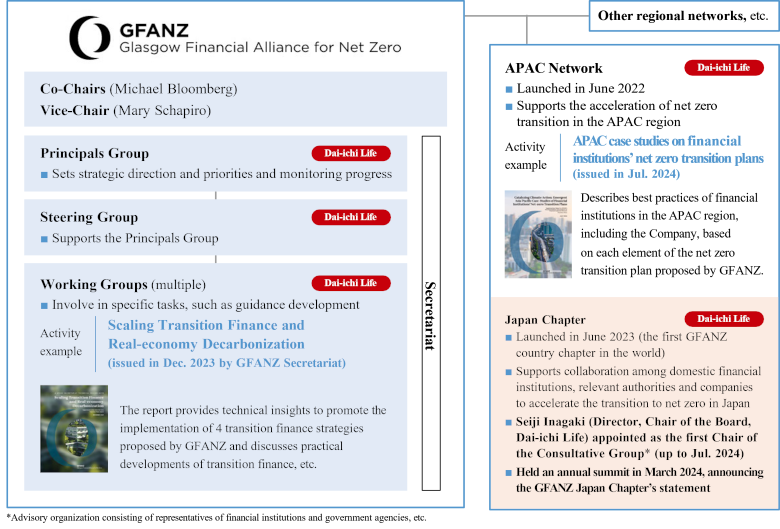Dai-ichi Life participates in the groups and working groups of GFANZ, and is contributing to the creation of its reports, including Financial Institution Net Zero Transition Plans: Fundamentals, Recommendations, and Guidance issued in 2022.
Also, Dai-ichi Life proactively contributes to activities of the GFANZ Japan Chapter where Seiji Inagaki, Director, Chair of the Board of Dai-ichi Life, serves as the first Chair of the Consultative Group of the chapter. Further, GFANZ is discussing approaches to transition plans from the natural capital perspective, in cooperation with TNFD.
